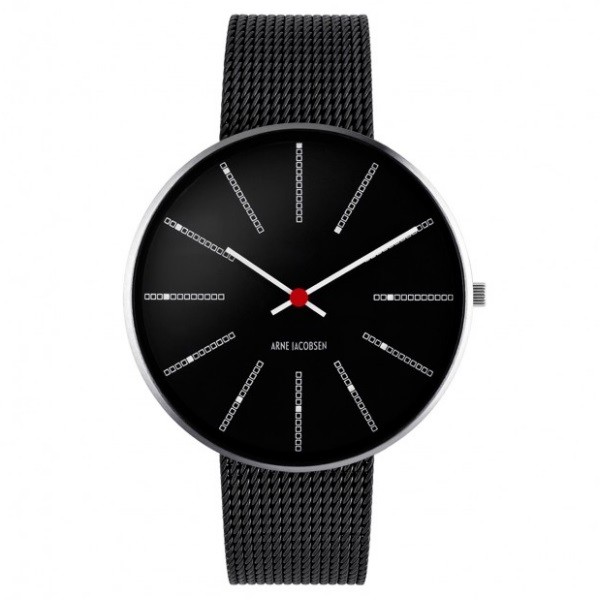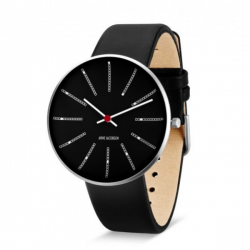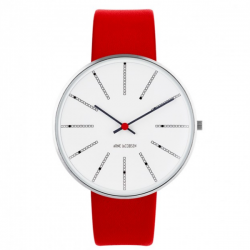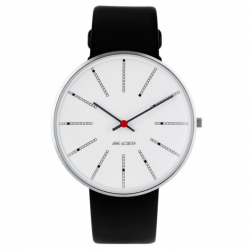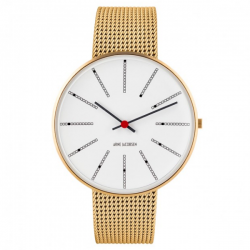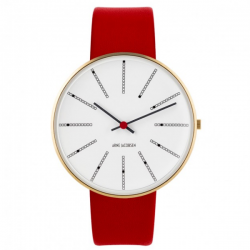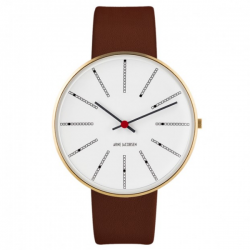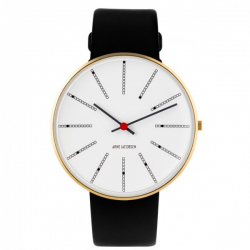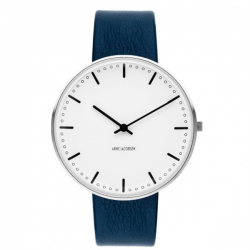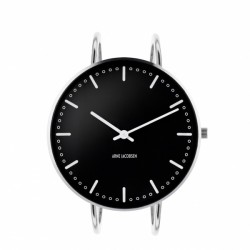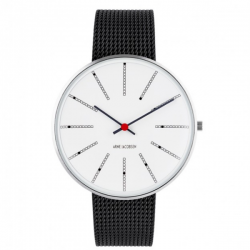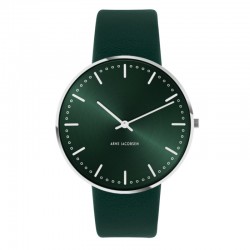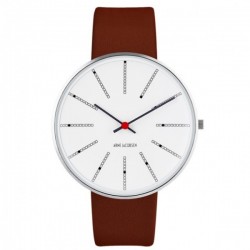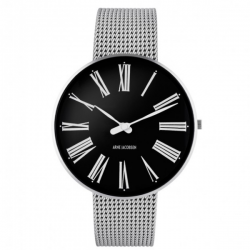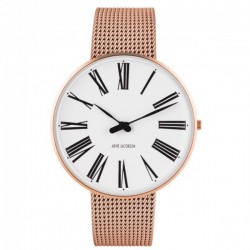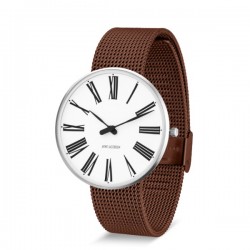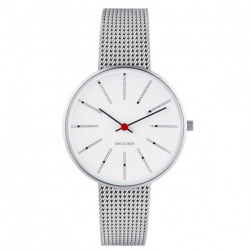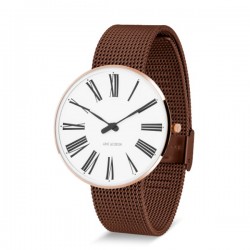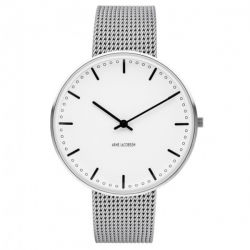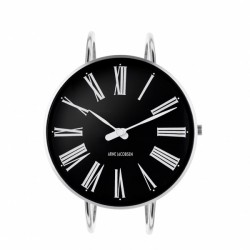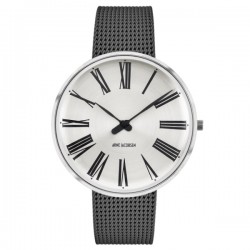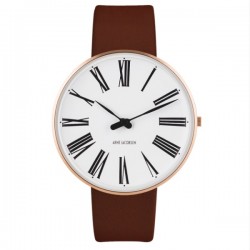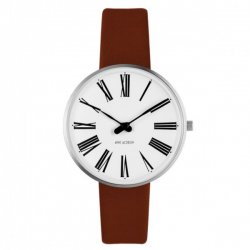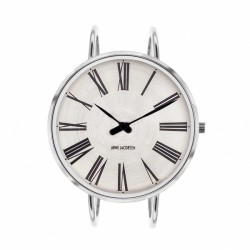Arne Jacobsen also designed the clocks on his buildings: Aarhus City Hall, Rødovre City Hall and Denmark’s National bank.
Using these clocks as inspiration a new series of wall clocks, table clocks and wristwatches was designed in close collaboration with Arne Jacobsens former employee, Teit Weylandt. Arne Jacobsen won the competition to design Denmark’s National Bank in 1961.
The building was completed in 1978, seven years after his death.
The Bankers Clock hangs in the 20-metre high lobby, which extends like a cathedral through the building’s six floors. The walls are covered in marble, and daylight pours through narrow vertical windows
Arne Jacobsen Bankers wrist watch with a matt black 20 mm mesh band. The dial on this watch is 40 mm.
Solid stainless steel case with a concave dial, hardened double convex M2 glass, 3 ATM.
- Specifications
Solid stainless steel case with concave dial, hardened double convex M2 glass
3 ATM, black brushed mesh band in black stainless steel.
- Size Description
Diameter 30, 34 and 40mm
-
Arne Jacobsen
<p>Arne Jacobsen (1902-1971) was trained as a bricklayer and graduated from The Technical Society's school in 1924 and Copenhagen Art Academy 1927. In 1928 he received the Academy's gold medal, but prior to this, when only 23, he was awarded a silver medal at the 1925 Paris World Exhibition - the first of numerous honours that became a natural accompaniment to his artistic activities, his untiring search and his brilliant conceptions, made manifest by many successes in competitions at home and abroad. His main works include: town halls in ?rhus, Søllerød, Rødovre and Glostrup, SAS-building (Royal Hotel) in Copenhagen, Munkegårds School in Gentofte, Toms Chocolate Factory in Ballerup, The Danish National Bank headquarters, a sports hall in Landskrona, St. Catherine's College, Oxford and Hamburgerische Elektrizitätswerke's administration building. In 1932, Arne Jacobsen began collaboration with Fritz Hansens Eft. A/S, and over a period of years designed a series of chairs which are now recognised as milestones in the development of modern furniture. They include "The Ant" (1951), "The Egg" (1957), and "The Swann"(1957). But he was also an innovator in other design fields, such as the tableware series "Cylinda-line" in stainless steel. Arne Jacobsen was a professor at the Art Academy, and received honorary doctorates from a number of foreign universities and academies. Cylinda-line was awarded the ID-prize 1967 by The Danish Society of Industrial Design and The International Design Award 1968 by The American Institute of Interior Designers.</p>


 EUR
EUR


